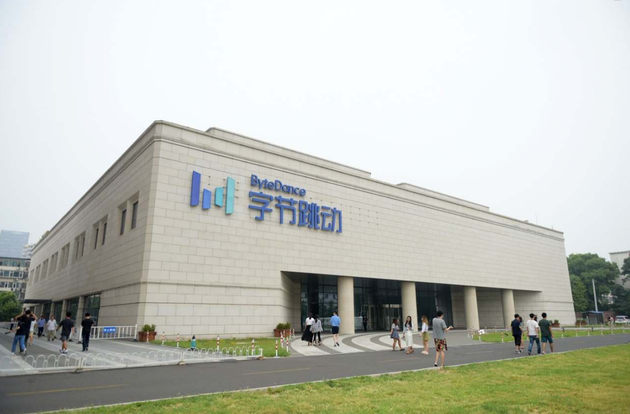
Photo/VCG
May 29 (NBD) -- Chinese internet technology firm ByteDance is planning to make a move into hardware to develop its own smartphone, Financial Times reported Monday citing two people familiar with the project.
ByteDance later denied the smartphone news, claiming that its hardware business emphasized on developing education products instead of mobile phone and the new product is scheduled to hit the market this year, according to media reports.
"As Internet products have clear life cycles and face fierce rivalry, tech companies are motivated to develop terminals with their apps preloaded to retain app install rate and improve user base," so said iiMedia Research CEO Zhang Yi to National Business Daily (NBD), explaining the logic behind Internet companies' foray into the hardware domain.
Hardware devices ensures content delivery
An operator of several popular apps including short video app TikTok and news aggregator Jinri Toutiao, ByteDance is attempting to expand its presence through launching hardware products with its apps preloaded.
The tech firm first revealed its ambition in the hardware field in January when ByteDance acquired part of patents owned by smartphone maker Smartisan Technology.
ByteDance told NBD at the time that the move helps the company take step into the education hardware domain.
Along with the deal, all employees in the hardware department and some from software segment of Smartisan have signed the new labor contract with ByteDance.
"By taking over Smartisan's patents and staff, ByteDance obtained the technology and the R&D team from the former, enabling ByteDance, a new player in the market, to take a shortcut in hardware development," commented Zhang Yi.
As for the reason for ByteDance's deployment in the hardware field, Zhang Yi held the business is expected to enlarge ByteDance's user market and better its revenues, which could push up the valuation of the company.

Photo/Shetuwang
Besides, in order to cope with cut-throat competition in Internet products with clear life cycles, tech companies are motivated to develop terminals with their apps preloaded to maintain the app install rate and improve user base, he mentioned.
As smart devices have been the entrance of traffic and carriers for content distribution in the age of mobile Internet, selling hardware products is a way for ByteDance to keep delivering contents to users, explained Zhang.
Software services and user base matter
ByteDance is not the first Internet tech firm setting foot in the hardware domain such as the smart speaker market.
In 2014, Amazon launched Amazon Echo, a smart speaker equipped with virtual assistant system Alexa. Baidu released its Xiaodu speaker last year, which gained popularity among Chinese users. Tencent, Alibaba Group and JD.com released their smart products like TVs, home appliances and wearable devices and cars.
Compared to hardware firms, Internet companies' strengths lie in the software services and their user bases, said Yan Zhanmeng, research director at Hong Kong-based research institution Counterpoint, in an interview with NBD. The Internet tech companies could grab a piece of the hardware market if their apps have strong user stickiness, Yan added.
For ByteDance, its millions of users and large amount of capitals as well as Smartisan's technology and team can back its development of smartphone and other hardware business, according to Zhang Yi.
New economy observer Wang Guanxiong further noted that in developing hardware products, Internet companies will be tested in diverse aspects including supply chain establishment, R&D pace and sales and team building.
Email: gaohan@nbd.com.cn


 川公网安备 51019002001991号
川公网安备 51019002001991号





